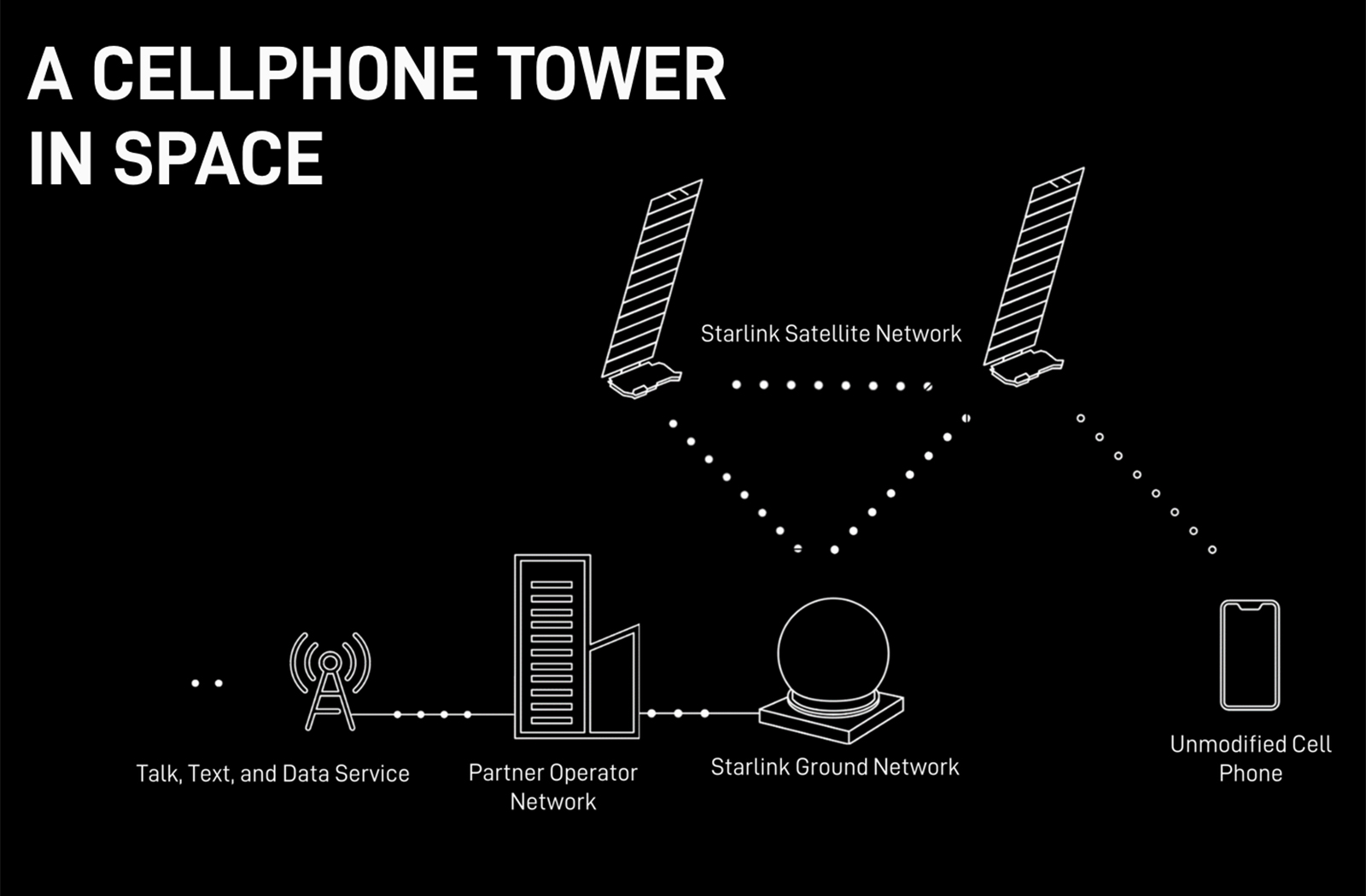 Starlink’s “Direct to Cell” service.
Starlink’s “Direct to Cell” service.
Starlink, the SpaceX subsidiary, recently announced its new satellite phone service called “Direct to Cell”, which was presented as a Swiss premiere by Salt. It allows access to SMS, voice calls and data for 4G phones around the world. It is designed to work with existing 4G devices without the need for modification.
Starlink’s Direct to Cell service is presented as a telecommunications antenna in space. According to this new page published a few days ago, a special modem is used on board the Starlink satellites that works like a cell tower from a standard roaming partner.
Eliminate dead zones?
One of the main benefits of this service is that it enables connectivity in remote areas, giving customers peace of mind when they need it most. In fact, Starlink promises coverage for SMS (2024), calls and navigation (2025), whether you’re on land or at sea.
This technology is designed to work with existing 4G smartphones without the need for hardware modifications, firmware or special applications. It is also planned to connect IoT devices to common LTE standards by 2025. Whether the signal also reaches deep valleys, for example, remains to be seen.
Additionally, Starlink’s Direct to Cell service will face some competition in this emerging market (read our situation update). For example, Apple already offers an emergency SOS function via satellite. Qualcomm, in turn, announced that smartphones based on its Snapdragon 8 Gen 2 platform would be able to send two-way messages via the Iridium satellite constellation. And that’s not to mention the many other ongoing projects.
Kessler syndrome in sight?
Starlink’s Direct to Cell service looks promising and could further improve the way we communicate, especially in remote areas. However, we must not forget that all these satellite constellations (we are talking about thousands of objects) not only interfere with astronomical observations, but also represent a significant source of potential nuisance for space.
As if terrestrial pollution were not enough, despite the various industry precautions, Elon Musk or his competitors could be the origin of Kessler syndrome and possibly the end of the use of artificial satellites. In this case, it may be impossible for the famous American billionaire to send rockets to Mars. Meditate.
Xavier Studer with Perplexity.ai
I like this :
I would like to load…

